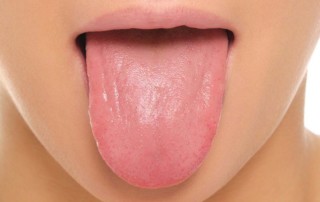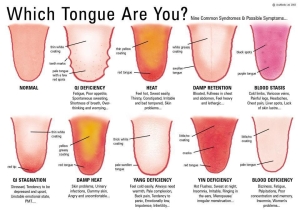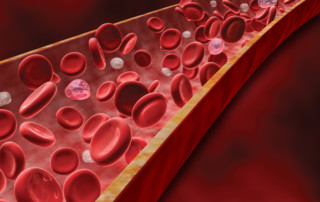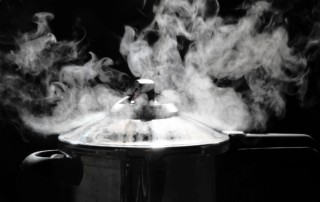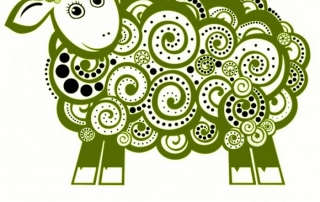Pulse Diagnosis
PULSE DIAGNOSIS
The heart is a highly tuned instrument that reads electromagnetic waves. Different frequencies are read by the heart as emotions, just as visually they are read as colors. That is how Stephen Harrod Buhner describes it in perhaps the best explanation of the heart's functioning to a Western audience.
Qi refers to the electromagnetic waves emanating from all life. Every cell in our body has Qi. Every organ system has Qi. Each person, animal, and plant emanates Qi that is the collective resonance of all their cells together.
The heart in Daoist philosophy and Chinese medicine is symbolized by the archetype of the emperor. The brain, and every other organ in the body are subjects of the heart.
When we feel the pulse, we are tapping in directly to all the electromagnetic waves of the body filtered through the heart. We are hearing the emperor speak.

The 6 Pulse Positions
There are 3 pulse positions on each wrist. Each position gives you information on the health of different organ systems. You will want to observe the pulse as a whole, as well as divided into position and depth to give you a complete picture.
How to Find the Pulse
You will use 3 fingers, 1 finger to feel each pulse position. These are your index, middle, and ring fingers. Line up the top crease of your middle finger with the bony part of your wrist closest to your hand. Then wrap your fingers around the wrist. See video here.
The Cun Position
This is the position closest to the wrist felt by your index finger. In a normal pulse it is the most superficial of the 3 positions. On the left it tells you the condition of the heart . On the right of the lungs.
The Guan Position
This is the central position felt by your middle finger. In a normal pulse it is medium in depth. On the left it tells you the condition of the liver. On the right of the spleen and digestion in general.
The Chi Position
This is the position furthest from the wrist a felt by your ring finger. In a normal pulse it is the deepest, but still strong and distinct. On the left it tells you the condition of kidney yin. On the right of kidney yang.
Qualities of the Pulse, and What They Mean
It takes Chinese medicine doctors a lifetime perhaps to master pulse diagnosis, but everyone can understand enough to help guide their own health. There are 29 official pulse types in Traditional Chinese Medicine, with endless combinations. Below I list the pulse types that are most common and relevant.
Normal
A normal pulse (ping mai) is smooth, even and forceful. The pulse is present at the Cun, Guan, and Chi positions and from superficial to deep. Its quality should not change very often or easily. There is a normal variation from person to person.
Depth
Superficial or Floating 浮脉 fú mài
A superficial pulse most often indicates an exterior pathogen, i.e. the immune system is actively fighting off an invader attacking from the outside. The Defensive Qi of the body builds up at the borders to ward off the attack.
Less commonly deficiency syndromes where Yang Qi floats to the surface.
DEEP 沉脉 chén mài
A deep pulse indicates an interior pattern.
Speed
RAPID or FAST 数脉 shù mài
A rapid pulse pulse indicates Heat.
SLOW 遲脈 迟脉 chí mài
A slow pulse indicates Cold.
Length
LONG 長脉 chǎng mài
A long pulse indicates excess liver Yang, excess heat in the interior, or a strong pathogenic invasion.
SHORT 短脉 duān mài
A short pulse indicates there is not enough Qi to move the blood, either due to Qi stagnation or Qi deficiency.
Strength
FULL or EXCESS 实脉 shí mài
A full pulse indicates an excess condition where both the Qi and blood of the body and the pathogen are strong, i.e. a big fight.
EMPTY or DEFICIENT 虚脉 xū mài
A deficient pulse indicates weakness in the body.
Quality
FINE OR THREADY 细脉 xì mài
A thready pulse indicates Qi and blood deficiency, or yin deficiency. In yin deficiency, the pulse is typically fast and thready indicating heat + fluid deficiency.
WIRY or STRING-TAUT 弦脉 xuàn mài
A wiry pulse indicates that the liver Qi is not flowing smoothly due to imbalances in the liver and gallbladder organ systems, pain, or phlegm retention.
SLIPPERY or ROLLING 滑脉 huá mài
A slippery pulse indicates an accumulation of internal pathogenic factors such as phlegm-damp, food stagnation (indigestion), or excess heat. It is considered normal (ping mai) for women during pregnancy.
CHOPPY or ROUGH 涩脉 sè mài
A choppy pulse indicates blood not flowing smoothly. This could be due to blood deficiency, blood stagnation, or Jing deficiency.
Beat Regularity
REGULAR IRREGULAR 代脉 dài mài
A regular irregular pulse indicates trauma or advanced heart disease. This pulse indicates a serious health condition.
KNOTTED (IRREGULAR IRREGULAR) 结脉 jié mài
A knotted pulse indicates an excess Yin condition: Qi stagnation due to Yin excess, blood stagnation due to phlegm-damp, or blood stagnation. In Western terms , it indicates an irregular beat or palpitation stemming from the ventricle of the heart, but is less serious than a regular irregular pulse.


